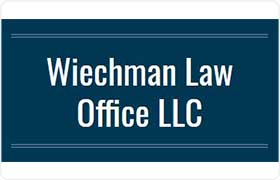 Wamego Reorganization Lawyers, Kansas
Wamego Reorganization Lawyers, Kansas
Sponsored Law Firm
-
 x
x

Click For More Info:
-
Wiechman Law Office LLC
1101 Sw 10th Ave. Topeka, KS 66604» view mapBankruptcy & Debt Law A Better Way Forward
Our mission is to guide our clients to a better way of life. We are here to listen. We are here to help. We’ll find a solution that fits you and your situation.
800-969-4051
Not enough matches for Wamego Reorganization lawyer.
Below are all Wamego Bankruptcy & Debt lawyers.
Sponsored Lawyers
1-7 of 7 matches
Bankruptcy, Reorganization, Workout, Credit & Debt, Consumer Bankruptcy
Gary E. Hinck is an experienced Bankruptcy Attorney who has helped thousands of clients through the Bankruptcy process. Gary and his staff understand you may be at a low point in your life, and they work hard to ease the stress and guide you through the process so you can move on and get your fresh start. Gary only represents Debtors and never represents Creditors. Gary is a Graduate of Washburn University with a Bachelors degree in Communications and Political Science. Gary Graduated Washburn University School of Law in 1997. Prior to, and during college Gary worked as a radio and television reporter as well as ran his own businesses. Gary is a member of the Kansas Bar Association, the National Association of Consumer Bankruptcy Attorneys, and member and past president of the Topeka Area Bankruptcy Council. Gary is a native Kansan who has been an attorney for two decades, his prior experiences give him the knowledge a good bankruptcy attorney needs to be familiar with many areas of law. Don’t trust your financial future to a new attorney or someone who doesn’t focus exclusively on Debtors in Bankruptcy.
(more)


 Kerry Gasper Topeka, KS
Kerry Gasper Topeka, KS

